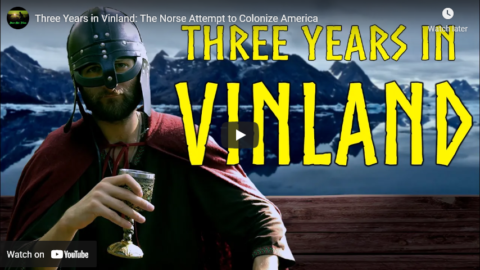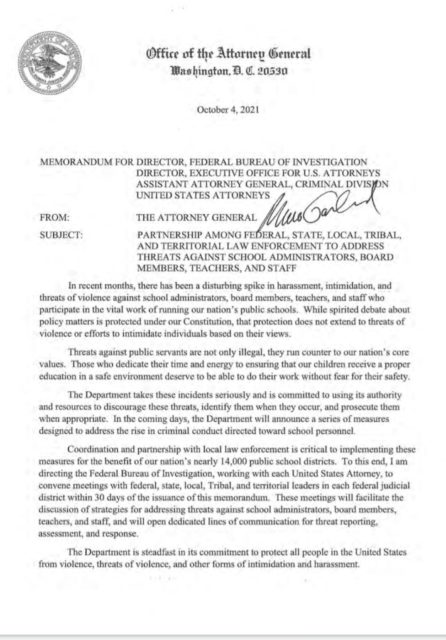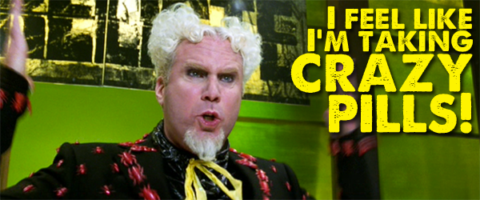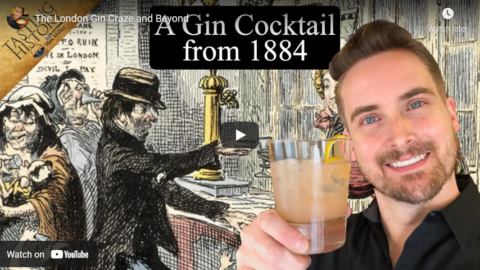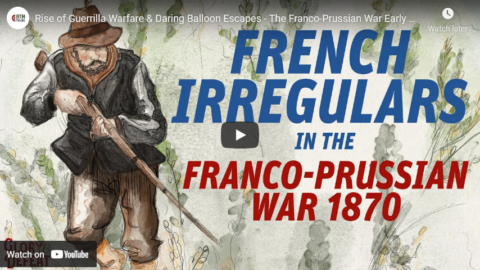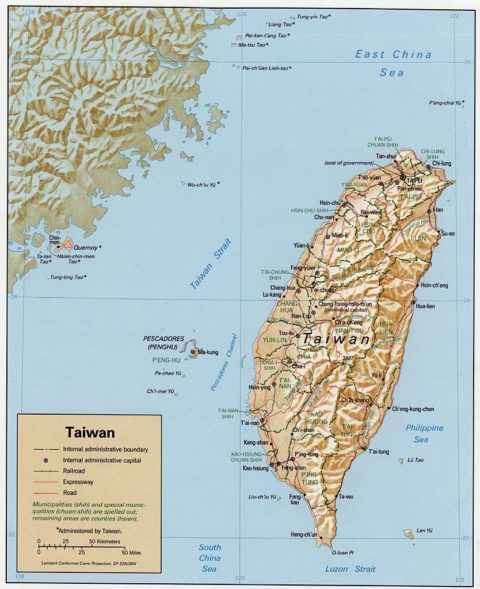It was Columbus Day yesterday, where historically, Americans have celebrated the discovery of the “New world” by Christopher Columbus’ little fleet in 1492. Now, historically there were previous discoveries of parts of the Americas by Europeans. Vikings encountered Newfoundland in roughly 1000 and even had a small settlement there. Some writings indicate that an explorer named Brendan encountered the Americas in the sixth century AD. Chinese apparently had landed on the Pacific coast as early as 3300 years ago.
But when Columbus landed on the Caribbean Island of San Salvador in the Bahamas, he set off a wave of exploration and colonization which the previous discoveries had not. The Viking and Chinese settlements did not last, but the post-Columbian ones did. And that is an incredibly significant historical event, no matter how you view history.
In the 1970s it became popular on the left to consider Columbus a monster, a villain who gave the innocent and peaceful natives diseases, enslaved them, wiped out their culture, and destroyed all that was good. This theory teaches that the American natives were all good and peaceful and wonderful and just and true and righteous. They all ate free trade non-GMO gluten free food and were perfectly multicultural and non-judgmental, free of war and with perfect gender equality. Columbus, an evil white European showed up and ruined it all. In short, Columbus he infected the Eden-like paradise of the Americas with his Euro-masculinity.
And the origin of this theory is that of the Noble Savage. There were people living outside the evil corrupting influence of White European Males, and Columbus found them and ruined everything. That’s why when you hear someone talking about this, they never mention the nearly-constant wars, cannibalism, human sacrifice, rape, pillaging, genocide, disease, poverty, and incredible lack of technical and scientific, artistic, and literary knowledge of the native peoples of America.
Columbus was a man of his time, and a particularly greedy one at that. He ripped off his own people, acting as the King’s supreme representative and authority in the Americas (which at the time was not known to be as vast as it is). He took credit for what others did, he took over what they developed, he took the riches they found, and so on. And yes, he and his men enslaved the local natives, and because of their culture of “free love” spread European venereal diseases among the natives they were not exposed to before. Entire tribes were wiped out by the infections they had no resistances to.
Of course, the natives spread disease among the Europeans they hadn’t been exposed to, either, such as Typhus and Syphilis, and the natives were murderous and killed Europeans but those are details that modern revisionist historians either ignore, gloss over, or present as a rough sort of justice: they had it coming for daring to set foot in the Eden of the Americas.
Objectively, neither side was particularly admirable, as one would expect if you understand innate and original sin. If what’s bad comes from within us rather than outside influences, then its spread evenly throughout all humanity without regard to creed, culture, race, or location. The natives were bad because people are bad. The Spaniards and Columbus (who was Italian) was bad, because people are bad.
Christopher Taylor, “Eden Ruined By Italian”, Word Around the Net, 2018-10-09.
October 11, 2021
QotD: Columbus Day
October 10, 2021
Three Years in Vinland: The Norse Attempt to Colonize America
Atun-Shei Films
Published 9 Oct 2021Happy Leif Erikson Day! Some time after Thorvald Erikson’s disastrous voyage to the mysterious lands west of Greenland, a wealthy Icelander named Thorfinn Karlsefni financed and led an expedition of his own, with the goal of establishing a permanent Norse settlement in Vinland. Karlsefni and his crew would spend three summers in the New World, where they would have to deal with internal division, hostile Native Americans, and (according to some) the wrath of demonic mythological creatures.
Support Atun-Shei Films on Patreon ► https://www.patreon.com/atunsheifilms
Leave a Tip via Paypal ► https://www.paypal.me/atunsheifilms
Buy Merch ► https://teespring.com/stores/atun-she…
#LeifErikson #Vinland #History
Original Music by Dillon DeRosa ► http://dillonderosa.com/
Reddit ► https://www.reddit.com/r/atunsheifilms
Twitter ► https://twitter.com/atun_shei~REFERENCES~
[1] Magnus Magnusson & Hermann Pálsson. The Vinland Sagas: The Norse Discovery of America (1965). Penguin Books, Page 7-43
[2] Birgitta Wallace. “Karlsefni” (2006). The Canadian Encyclopedia [https://www.thecanadianencyclopedia.c..].
[3] Lorraine Boissonault. “L’Anse Aux Meadows and the Viking Discovery of North America” (2005). JSTOR Daily https://daily.jstor.org/anse-aux-mead…
First the Bloc Québécois, then “Wexit”, now Bloc Montréal?
Barbara Kay makes the case for Montreal to re-evaluate its position within Quebec as the Quebec government pushes toward even more legal efforts to reduce the English-speaking community to a second- or even third-class citizenship:
Oct. 7 brought an end to consultations on Quebec’s Bill 96, which amends the 1977 Charter of the French Language (Bill 101) and — unilaterally, never before attempted by a province — the Constitution Act of 1867. A few anglophone institutions were invited to the hearings, but their inclusion was pro forma. Bill 96 will pass through use of the notwithstanding clause.
The bill affirms Quebec is a nation, with French as its “common” as well as its only official language, adding several new “fundamental language rights” for French. It effectively creates both a Canadian and Quebec Charter-free zone in a wide range of interactions between individuals and the state. Even before passage, use of the P-word (“province”) has become politically charged, and quietly redacted from public usage by Bill 96 dissidents.
The impact of Bill 96 on anglophones could be momentous. One amendment, which restricts access to English health and social services to those with education-eligibility certificates, could negatively affect upwards of 500,000 anglophone Quebecers. It speaks volumes that the Minister of the French Language will take responsibility for outcomes delivery in that sector away from the Minister of Health and Social Services. Bill 96 will also negatively affect young francophones by capping their numbers at English cegeps [Collège d’enseignement général et professionnel or “General and Vocational College”].
The previous expansions of French language rights in Quebec — and corresponding contractions of English language rights in the province — drove waves of emigration to other provinces, helping Toronto surpass Montreal as Canada’s largest city and economic powerhouse. In the middle of a pandemic, it’s much harder for those who are feeling oppressed to leave Quebec, but there may be another possibility:
Montreal as a city-state, or at least a special autonomous region — a status the Cree nation of northern Quebec has enjoyed for decades — was first raised as a serious idea eight years ago. In 2013 the Parti Québécois proposed language Bill 14, as draconian as Bill 96, which died when premier Pauline Marois’s minority government couldn’t enlist enough collegial support for its passage. Nevertheless, the attempt galvanized alarm sufficient to inspire a transiently influential city-state movement.
A 2014 Ipsos poll on the subject commissioned by that group elicited these key takeaways from Montrealers: Montreal is a distinct society within Quebec (90 per cent); to stop its decline, Montreal needs to take drastic steps to improve its performance (91 per cent); and Montreal deserves special status within Quebec because it is a world-class, cosmopolitan city (74 per cent). Those numbers would likely be as high or higher today.
[…]
We need a Bloc Montréal to represent Montreal/Greater Montreal’s “distinct society” at the Quebec National Assembly in Quebec City. The pivotal moment of the 1995 referendum campaign was the revelation — one that had never before occurred to the separatists — that “if Canada is divisible, then Quebec is divisible”. That was a sobering and clarifying moment. And Montreal has a greater need for augmented representation in Quebec City than Quebec has in Ottawa. After all, Quebec profits handsomely from its affiliation with Canada, while the opposite is true of Montreal and Quebec City.
Stalingrad Thunderdome: Paulus vs. Chuikov! – WW2 – 163 – October 9, 1942
World War Two
Published 9 Oct 2021Things are looking pretty grim for Vassily Chuikov’s 62nd Army in Stalingrad this week, as the German 6th Army launches its biggest series of attacks so far. The Axis are unable to get anywhere in the Caucasus, though, and the American Marines win a local victory over the Japanese on Guadalcanal, but everyone’s thoughts there are on reinforcing and more reinforcing.
(more…)
“The NSBA letter is a blood libel against America’s dissenting parents”
In this Substack essay, C. Bradley Thompson calls the National School Boards Association’s (NSBA) demand that the federal government treat dissenting parents as “domestic terrorists” a declaration of war against ordinary American citizens:
On September 30, the National School Boards Association (NSBA) sent a letter to the Biden administration denouncing the nationwide parental protests taking place at school board meetings against Critical Race Theory, Critical Gender Theory, pornography in the classroom, mask mandates, vaccine requirements, and remote learning. It turns out that parents all over the country are upset about the indoctrination and censorship in America’s government schools. An army of moms (and dads) have been asserting their parental responsibilities and their constitutional rights by showing up to school board meetings and voicing — sometimes angrily — their contempt and disgust for those school boards and teachers promoting and sanctioning ideas and ideologies opposed by the parents.
The NSBA letter (see here) begins rather ominously by declaring that “America’s public schools and its education leaders are under an immediate threat” and that “immediate assistance” is therefore “required to protect our students, school board members, and educators who are susceptible to acts of violence affecting interstate commerce because of threats to their districts, families, and personal safety.” The NSBA is essentially declaring a “State of Emergency” for America’s government school system. Let that sink in for a moment.
[…]
Let’s be clear about what the NSBA letter means in practice: first, it is dog-whistling a message which says that protesting parents are engaged in “domestic terrorism and hate crimes” (including, presumably, against their own children); and, second, it is requesting that the Biden administration use the full coercive power of the United States government — power that it has only previously been used against Islamic terrorists and foreign enemies of the United States — to monitor, investigate, arrest, interrogate, prosecute, convict and jail upset parents who are protesting AGAINST the teaching of systemic racism (i.e., CRT), pornography in the classroom, and the unscientific mask mandates for children.
The NSBA letter is saying, in effect, that complaining parents are the moral equivalent of jihadi terrorists, who are out to commit acts of violence and terror against America’s school board members, its teachers, and, yes, even the children. As such, these parents should be treated as a national security threat, and they must be dealt with by all means necessary.
The NSBA letter is a blood libel against America’s dissenting parents. In a decent, free, and just society such a letter would be condemned and dismissed out of hand, but that is not the kind of society in which we live today.
Rather than tossing the NSBA letter in the trash where it belongs, the Attorney General of the United States, Merrick Garland, read it and immediately ordered the FBI and America’s National Security State to mobilize its immense power against parents whose only real crime is to take seriously the education of their children. He did this within just a few days of receiving the NSBA letter.
I encourage you to read — and to read slowly — Garland’s official memorandum sent to the Director of the FBI and to various other law enforcement agencies, offices, and divisions.
Garland’s letter is a moral, political, and constitutional abomination. To say there are serious problems with the Attorney General’s Orwellian letter would be an understatement. The letter asserts, for instance, that “there has been a disturbing spike in harassment, intimidation, and threats of violence against school administrators, board members, teachers, and staff.” It claims as fact a “rise in criminal conduct directed toward school personnel”. Neither the NSBA nor the Justice Department have provided any credible or meaningful evidence to support this unfounded claim, nor does Garland’s passive-aggressive letter specify what it classifies as “criminal conduct” or “domestic terrorism”. (Not surprisingly, Garland’s letter neglects to mention that some school board members and the teachers’ unions have been harassing and threatening parents for months. See here, here, here, here, and here.) The simple fact of the matter is that virtually no violence has occurred at school board meetings this year.
In support of the NSBA request, Garland’s memorandum announced that he has directed the FBI and each U. S. Attorney to convene meetings immediately with “federal, state, local, Tribal, and territorial leaders in each federal judicial district” in order to “facilitate the discussion of strategies” for dealing with threats against school officials. The Department of Justice will also “open dedicated lines of communication for threat reporting, assessment, and response”. In other words, the government will establish “snitch” lines against parents. If a school board member doesn’t like what they hear in a public meeting, they will be able to report (presumably anonymously) threats of harassment and intimidation.
Book Review: The Guns of John Moses Browning, by Nathan Gorenstein
Forgotten Weapons
Published 24 Jun 2021http://www.patreon.com/ForgottenWeapons
https://www.floatplane.com/channel/Fo…
Cool Forgotten Weapons merch! http://shop.forgottenweapons.com
John Moses Browning is, without argument, the greatest firearms designer in history. While we have had many brilliant designers who had their names forever connected to guns (Maxim, Luger, Kalashnikov, …), Browning invented whole *categories* of firearms. Gorenstein’s new book The Guns of John Moses Browning is a welcome biography of the man, giving great insight into Browning’s life and work. The book is well researched, well written, and thoroughly engaging. It is also worth noting that Gorenstein is himself a competitive shooter, and understands the world that Browning operated in.
I think my back-cover blurb for the book (for which I received no compensation; full disclosure) sums it up well:
Following Browning from his birth in rural Utah to his death in urban Belgium, we see how a changing world shaped his inventions and how, in turn, his inventions shaped a changing world.
Browning began in the last years of the Wild West inventing lever action rifles, then became a major part of the blossoming of the automatic pistol, then invented the semiauto shotgun before designing the modern machine guns that become iconic to the United States’ involvement in two world wars. It is a tremendous story, and Gorenstein’s book lays it all out for the reader.
Available from Amazon here:
https://amzn.to/355eMxeContact:
Forgotten Weapons
6281 N. Oracle 36270
Tucson, AZ 85740
QotD: The taste for ugliness
Rome wasn’t destroyed in a day, of course, but it was destroyed. That, at any rate, was the thought that occurred to me when, in a Parisian bookshop (patronized, as you would expect, by bourgeois bohemians), I came across a book with the title of Le Goût du moche (“The Taste for the Ugly”), by a fashion journalist called Alice Pfeiffer.
The word ugly does not quite capture the connotations of the word “moche“, which include those of bad taste. If I were to try to make a table, it would probably be ugly due to my incapacity as a woodworker, but not moche.
I must say that the publishers of the book (Fayard) have done the author proud. The shiny cover of the book is vivid purple at the top, descending by various shades of unpleasant colours to a bilious yellow at the bottom. The typeface is also in purple, and the pages the same shade of yellow where they are bound into the spine. It is, as an artifact, aesthetically appalling, as obviously it was meant to be.
If we lived in a normal world, the deliberate creation of something ugly would be regarded as reprehensible: but we do not live in such a world.
The author is an apologist for the ugly, seeing the search for beauty as a kind of totalitarian dictatorship against which the ugly is a justified or necessary revolt or uprising, a cry for individual freedom.
She is a Parisian bourgeoise who has been taught to decry and therefore to reject her own previous privilege. In her own estimate, she was unfortunate to have been so fortunate as to have been surrounded by beauty.
This highly ideological, dog-in-the-manger attitude to beauty is commonplace and has almost been made the basis of official policy — or if it has not, it might just as well have been.
Theodore Dalrymple, “Kitsch and Our Taste for the Ugly”, The Iconoclast, 2021-06-18.
October 9, 2021
The USSR: A Conspiracy Disguised as a Country – WW2 – Spies & Ties 09
World War Two
Published 8 Oct 2021The Soviet Union is built on distrust and paranoia, giving birth to a system of intelligence and a huge spy network ran by agencies such as the GRU and NKVD. But what good is all that information if you don’t believe it?
(more…)
The incredible growth of London after 1550
In the latest Age of Invention newsletter, Anton Howes considers some alternative explanations for London’s spectacular growth beginning in the reign of Queen Elizabeth I:
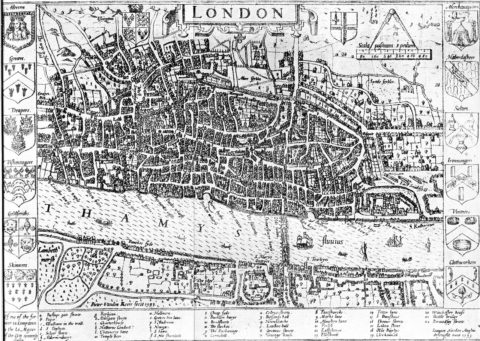
John Norden’s map of London in 1593. There is only one bridge across the Thames, but parts of Southwark on the south bank of the river have been developed.
Wikimedia Commons.
As regular readers will know, I’ve lately been obsessed with England’s various economic transformations between 1550 and 1650 — the dramatic eightfold growth of London, in particular, and the fall in the proportion of workers engaged in agriculture despite the growth of the overall population.
As I’ve argued before, I think that the original stimulus for many of these changes was the increased trading range of English overseas merchants. Thanks to advances in navigational techniques, they were able to find new markets and higher prices for their exports, particularly in the Mediterranean and then farter afield. And they were able to buy England’s imports much more cheaply, by going directly to their source. Although the total value of imports rose dramatically — by 150% in just 1600-38 — the value of exports seems to have risen by even more, as there’s plenty of evidence to suggest that for most of the period England had a trade surplus. The supply of money increased, even though Britain had no major gold or silver mines of its own.
The growing commerce was the major spur to London’s growth, with English merchants spending their profits in the city, and ever-cheaper and more varied luxury imports enticing the nobility from their country estates. Altogether, the concentration of people and wealth in London must have resulted in all sorts of spill-over effects to further drive its growth. After the initial push from overseas trade, I suspect that by the late seventeenth century the city was large enough that it was running on its own steam.
But on twitter, economic historian Joe Francis offered a slightly different narrative. Although he agrees that a change to overseas trade was the prime mover, he suggests that the trade itself was too small as a proportion of the economy to account for much of London’s growth. I disagree, for various reasons that I won’t go into now, but Joe brought to my attention various changes on the monetary side. Inspired by the work of Nuno Palma, he suspects that it was not the trade per se, but the fact of an export surplus that was doing the heavy lifting, by increasing the country’s money supply.
An increased money supply should have facilitated England’s internal trades, reducing their costs, and allowing for greater regional specialisation. Joe essentially thinks that I’ve got the mechanism slightly back to front: instead of London’s growing demands having reshaped the countryside, he contends that the specialisation of the entire country is what allowed for the better allocation of economic resources and workers to where they were most productive — a process from which a large city like London quite naturally then emerged.
I have some doubts about whether this process could really have been led from the countryside. The regional specialisation that we see in agriculture, for example, only really starts to become obvious from the 1600s onwards, by which stage London’s population had already begun to balloon from a puny 50,000 in 1550, to 200,000 and rising. I also haven’t found much evidence of other internal trade costs falling. Internal transportation — by packhorse, river, or down the coast — doesn’t seem to have become all that more efficient. Roads and waggon services don’t show much sign of improvement until the eighteenth century, and not many rivers were made more navigable before the mid-seventeenth century either. This is not to say that England’s internal trade didn’t increase. It certainly did, as London sucked in food and fuel in ever larger quantities, and from farther and farther afield. But it still looks like this was led by London demand, rather than by falling costs elsewhere.
Besides, the influxes of bullion from abroad would have all been channelled through London first, along with most of the country’s trade. To the extent that monetisation made a difference to the costs of trade then, this would have made a difference first in the city, before emanating out to its main suppliers, and then outwards. I thus see the Palma narrative as potentially complementary to my own.
The London Gin Craze and Beyond
Tasting History with Max Miller
Published 26 Jan 2021Help Support the Channel with Patreon: https://www.patreon.com/tastinghistory
Tasting History Merchandise: crowdmade.com/collections/tastinghistoryFollow Tasting History here:
Instagram: https://www.instagram.com/tastinghist…
Twitter: https://twitter.com/TastingHistory1
Tiktok: TastingHistory
Reddit: r/TastingHistory
Discord: https://discord.gg/d7nbEpy
Ketchup with Max: https://www.youtube.com/channel/UC1DL3SXDAdrQs2WE4AMD4SwLINKS TO SOURCES**
Gin: The Much-lamented Death of Madam Geneva by Patrick Dillon: https://amzn.to/39VxZU7
Gin: A Global History by Lesley Solmonson: https://amzn.to/3c8sJzc
The Diary of Samuel Pepys: https://amzn.to/391W64u
The Fable of Bees by Bernard Mandeville: https://amzn.to/3c13Eq8
Sketches by Boz by Charles Dickens: https://amzn.to/3sTMUar**Amazon offers a small commission on products sold through their affiliate links, so each purchase made from this link, whether this product or another, will help to support this channel with no additional cost to you.
Subtitles: Jose Mendoza
MUSIC
“Divertissement” by Kevin MacLeod is licensed under a Creative Commons Attribution 4.0 license. https://creativecommons.org/licenses/…
Source: http://incompetech.com/music/royalty-…
Artist: http://incompetech.com/#tastinghistory #gin #cocktail #gincraze
October 8, 2021
Critical Race Studies go international — “what was once considered an American eccentricity has gone global, and Britain’s curriculum engineers are doing their utmost to make up for lost time”
In The Critic, Frank Furedi looks at how quickly American elite fascination with the various incarnations of Critical Theory has spread beyond the US:
“My child has been told in a series of assemblies that she ‘has white privilege’, that she ‘subconsciously perpetuates it’, may even ‘consciously enjoy it’ and that she ought to be ‘starting to address it’. She has been shown slides of white BLM protesters holding placards that say ‘I will never understand’, told she needs to listen and educate herself and that intersectional theory shows that ‘whiteness will always insulate and protect her from racism’.”
Ten years ago, this mother’s story would likely be considered a joke; a parody of the culture wars that were starting to simmer across the Atlantic. But a lot can happen in a decade: the child whose mother recently reported the above attends an academy in London. Indeed, what was once considered an American eccentricity has gone global, and Britain’s curriculum engineers are doing their utmost to make up for lost time.
In the UK, curriculum engineers have embraced the approach of their American colleagues and are now busy targeting what they describe as outdated views and ideals. The term “outdated” serves as a euphemism for describing ideas and sentiments that do not accord with their project of distancing children from the traditions and way of life of their parents and grandparents. Under the banner of “relevance”, they wish to cancel the classics of literature and replace them with stories written by contemporary writers. Even the works of Shakespeare have been denounced for their outdated racist, antisemitic and misogynist views.
One of the most important and unremarked feature of recent developments in British classrooms is the uncritical and slavish manner with which curriculum experts imitate the cultural crusade of their American colleagues. Earlier this year it was reported that numerous American schools (including the prestigious $45,000-a-year Brentwood School in Los Angeles) were scrapping the apparently outdated To Kill a Mockingbird.
Evidently, some British curriculum leaders swiftly got the message. For example, the James Gillespie High School in Edinburgh decided that it no longer wants to teach classics like Of Mice and Men or to To Kill A Mockingbird in its English classes. The school claims that the “dated” approach to race of these wonderful novels disqualifies them from a place in the English literature curriculum.
Advocates of the project of decolonising schools target what they perceive as outdated views on issues as diverse as gender, trans culture, race and what it means to be British. School subjects as diverse as history, literature, geography and religious education are now used as vehicles for countering what they describe as “white privilege”. They encourage pupils to acknowledge their whiteness and perceive Britain as a society defined by its systemic racism.
Rise of Guerrilla Warfare & Daring Balloon Escapes – The Franco-Prussian War Early October 1870
Real Time History
Published 7 Oct 2021Sign up for Curiosity Stream and get Nebula bundled in and SAVE 26%: https://curiositystream.com/realtimehistory
In early October 1870, the German states are still confident the Franco-Prussian War is as good as over. But two events might cross their plans: One of the leaders of the new French Republic, Leon Gambetta, escapes the Siege of Paris in a hot-air balloon to coordinate the French Armies outside of Paris. And in Ablis, French guerrilla fighters, the so-called Franc-Tireurs, ambush a German patrol in their sleep — with swift German retribution.
» THANK YOU TO OUR CO-PRODUCERS
John Ozment
James Darcangelo
Jacob Carter Landt
Thomas Brendan» OUR PODCAST
https://realtimehistory.net/podcast – interviews with historians and background info for the show.» LITERATURE
Arand, Tobias: 1870/71. Die Geschichte des Deutsch-Französische Krieg erzählt in Einzelschicksalen. Hamburg 2018Arand, Tobias: Gestorben für “Vaterland” und “Patrie” – Die toten Krieger aus dem Feldzug von 1870/71 auf dem “Alten Friedhof” in Ludwigsburg. Ludwigsburg 2012
Hahn, Joachim: Jüdisches Leben in Ludwigsburg. Geschichte, Quellen, Dokumentation. Karlsruhe 1998
Schneider, Fernand Thiébaut: “Der Krieg in französischer Sicht”, in: Entscheidung 1870. Der deutsch-französische Krieg, hrsg. v. Wolfgang von Groote und Ursula von Gersdorff. Stuttgart 1970. S. 165-203
» SOURCES
Engels, Friedrich: Der Deutsch-Französische Krieg. Sechzig Artikel aus der “Pall Mall Gazette”. Berlin (Ost) 1957Huber, Rudolf (Hrsg.): Dokumente zur deutschen Verfassungsgeschichte. Bd. 2. 1851-1900. Stuttgart 1964
Kürschner, Joseph (Hrsg.): Der große Krieg 1870-71 in Zeitzeugenberichten. Leipzig o.J. (1895)
N.N. (Hrsg.): Bismarcks Briefe an seine Gattin aus dem Kriege 1870/71. Stuttgart, Berlin 1903
Philippson, G.: “Jom Kippur 1870 vor Metz”, in: Wegweiser für die Jugendliteratur, Heft 4, 6 (1910). S. 26-27
Steenackers, François-Frédéric/Le Goff, F.: Histoire du gouvernement de la Défense nationale en province, 4 Septembre 1870 – 8 Février 1871. Bd. II. Paris 1884
Tissandier, Gaston: Souvenirs et récits d’un aérostier militaire de l’armée de la Loire. Paris 1891
» OUR STORE
Website: https://realtimehistory.net»CREDITS
Presented by: Jesse Alexander
Written by: Cathérine Pfauth, Prof. Dr. Tobias Arand, Jesse Alexander
Director: Toni Steller & Florian Wittig
Director of Photography: Toni Steller
Sound: Above Zero
Editing: Toni Steller
Motion Design: Philipp Appelt
Mixing, Mastering & Sound Design: http://above-zero.com
Maps: Battlefield Design
Research by: Cathérine Pfauth, Prof. Dr. Tobias Arand
Fact checking: Cathérine Pfauth, Prof. Dr. Tobias ArandChannel Design: Battlefield Design
Contains licensed material by getty images
All rights reserved – Real Time History GmbH 2021
The case for defending Taiwan
Roberto White explains why the west should help protect the Republic of China from the People’s Republic of China:
The past few days have seen Taiwan subjected to another wave of continuous harassment by China. Of course this is nothing new; China has violated Taiwan’s airspace since at least 2014. But, on Monday, a record 34 fighter jets were dispatched to Taiwan. Beijing’s increasingly erratic behaviour towards Taiwan brings to the fore why the West must defend them.
Taiwan is a free-market democracy that, despite its overbearing northern neighbour, has managed to create a vibrant economy that ranks as the sixth freest economy in the world. Crucially, it is a major producer of semiconductors (a device that helps power everything from cars to satellites), accounting for 92 per cent of all production of the world’s most sophisticated and important chips. Thus, from both an ideological and strategic standpoint, defending Taiwan is a mutually beneficial move.
The case for Taiwan’s defence is further strengthened when we look at what could happen in Asia should China take Taiwan by force.
With Taiwan’s ports and air bases, the People’s Liberation Army (PLA) could extend its maritime militia northwards through the Ryukyu (the chain of islands between Taiwan and Japan) and the Senkaku Islands (disputed by China and Japan). This would give China increased leverage over Japan in a time of crisis by, for example, restricting its maritime commerce.
The CCP could further use Taiwan as a base for tighter control of the South China Sea by blocking the Luzon Strait (between Taiwan and the Philippines) and the Balintang channel, which would cut off the traditional route used by the US Navy to navigate regional waters. In essence, China would immediately become the foremost power in the Indo-Pacific that could eventually kick the US and its allies out of the region. Unfortunately, the threat of a Chinese invasion is not a distant reality. In March of this year Admiral Philip Davidson, the United States’ top military officer in the Asia-Pacific, warned that China could invade Taiwan by 2027.
Given the perilous scenario that would emerge from a Chinese invasion of Taiwan, it is vital that, should an invasion happen, the West comes to Taiwan’s defence. However, until such a time, Western allies should aim to help Taiwan by promoting its participation in international forums. The first step would be to allow diplomats and other officials with Taiwanese passports to enter UN buildings, which they currently cannot do. This would most likely provoke a backlash from China, yet it would also confer Taiwan the dignity and respect that officials from every other state have.
The West should also stand firm against Chinese attempts to exclude Taiwan from international organisations. Between 2008-2016, Taiwan was invited to be an observer at the World Health Organization (WHO) under the name “Chinese Taipei”. In 2016, after Tsai Ing-Wen was elected Taiwan’s President, Beijing rescinded the invitation and Taiwan has not been allowed to participate since.

